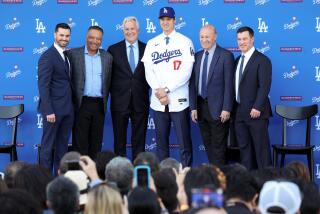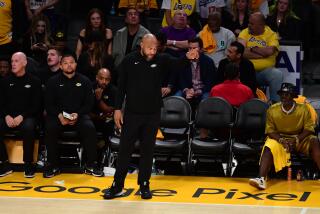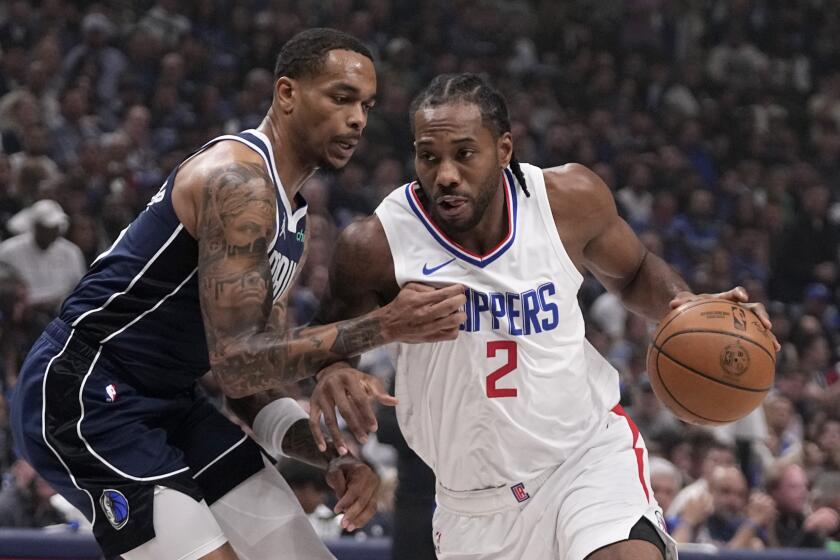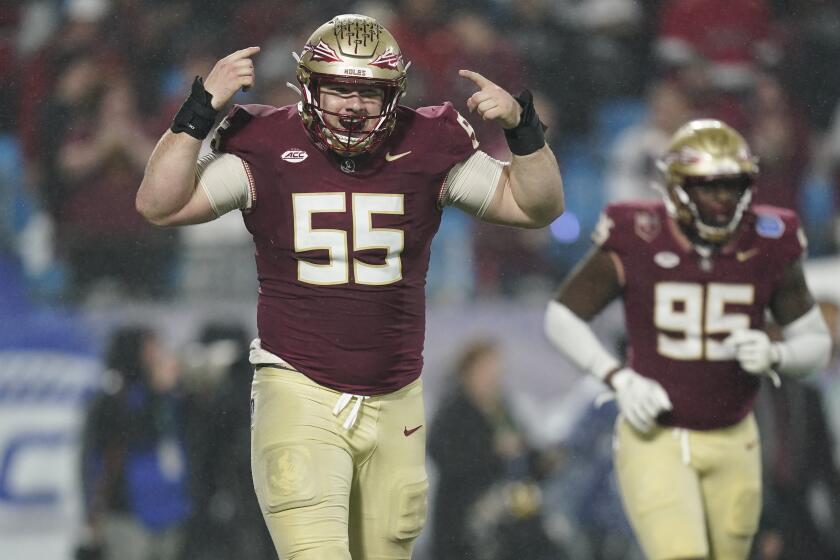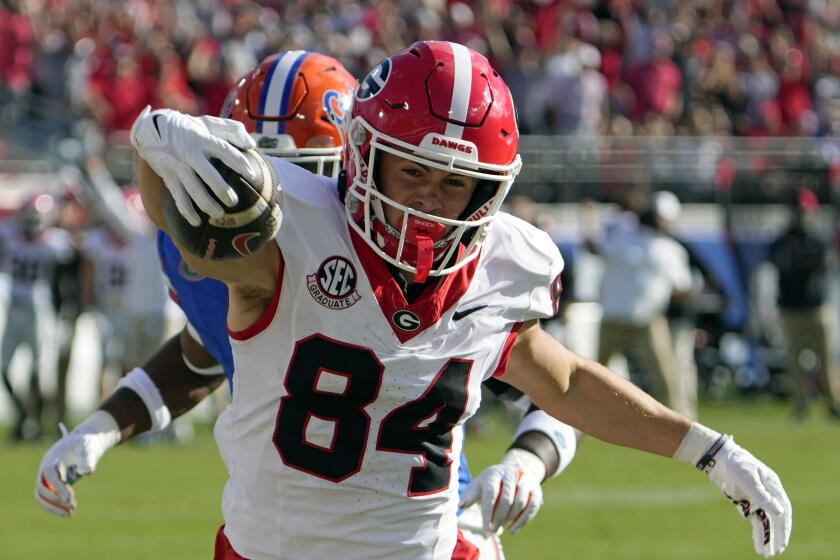Ex-NASCAR Champs See Stars Quitting Earlier
LOS ANGELES — At 3:44 on an August morning in 2007, former NASCAR champion Dale Jarrett suddenly woke from a sound sleep.
“It hit me then,” he recalled. “It’s time to retire.”
Jarrett was 50 at the time. He was struggling to recapture his past glory at the track and had overtures to be a NASCAR television analyst. So thoughts of leaving the race car had been building before he bolted awake.
Every driver has his own reasons for deciding when it’s time to retire, of course. But Jarrett said he does not expect Jimmie Johnson, Dale Earnhardt Jr. and the other top veteran drivers now competing in NASCAR’s Sprint Cup Series to collectively keep racing to age 50 and beyond.
Other past NASCAR champions, including Darrell Waltrip, Rusty Wallace and Bill Elliott, agreed it’s unlikely today’s crop of aging NASCAR stars will remain in the Cup series as long as they did.
“I don’t see them waiting that long” to retire, said Wallace, the 1989 Cup champion who stopped racing at 49.
The recent decision by 43-year-old Jeff Gordon, a four-time champion, to step away from full-time driving after this season only buttressed their belief.
Gordon’s decision also again triggered the when-might-you-retire question for several big-name NASCAR drivers, namely Johnson, 39, a six-time champion; Earnhardt, 40, reigning Cup champion Kevin Harvick, 39; former champion Matt Kenseth, 42; three-time champion Tony Stewart, 43; and Greg Biffle, 45.
All are making the Cup series’ stop this weekend at Las Vegas Motor Speedway, the third race of the season.
“Yeah, I’m getting up there,” Earnhardt told reporters before the Daytona 500 last month. But he added, “Right now I can’t see anything cropping up around me” to lead him to quit, “and hopefully they don’t for a while.”
Jarrett, now with NBC Sports, and the other past NASCAR stars cited several reasons why today’s drivers aren’t likely to race as long as they did: The current drivers’ seven- or eight-figure annual incomes, NASCAR’s grueling 36-race Cup season, the accompanying daily demands of appearances for sponsors, and growing competition from a strong contingent of young Cup drivers such as Joey Logano, 24, who won the Daytona 500 last month.
Earnhardt, for instance, earned $23.8 million last year while Johnson earned $22.5 million, Forbes recently estimated.
If the veteran drivers have young children — as Gordon, Johnson and others do — the desire to spend more time with them, and to step away from the threat of a racing injury, also plays a role in prompting drivers to retire earlier than the last generation did, they said.
Top drivers today are “making more money and there are more races now” with 36 points-paying events plus the All-Star race and Sprint Unlimited preseason exhibition race, Wallace said. “I love the sport to death, but that grind, man.”
Owing to the nature of the sport, race-car drivers can keep competing at NASCAR’s top level at ages higher than, say, those of players in the NFL or NBA, where physical limitations prevent most from playing past 40.
But as with all sports, NASCAR drivers must wrestle with the decision of when to walk away from careers that have been the center of their lives and, in some cases, made them household names.
Gordon crashes
LAS VEGAS — Jeff Gordon crashed during the final practice before Sunday’s race at Las Vegas Motor Speedway, where his pole-winning car was damaged enough that Hendrick Motorsports pulled out a backup Chevrolet.
Gordon had won the pole, but will have to drop to the rear of the field at the start of the race because he changed cars.
The accident happened in the final minutes of Saturday practice when Danica Patrick spun in front of him and Gordon was unable to avoid her car. Gordon’s car suffered heavy damage to the nose and right rear.
Hendrick Motorsports did not have time to get the backup car on the track. The backup was previously used last year at Chicago, Charlotte and Texas.
— Associated Press
More to Read
Get our high school sports newsletter
Prep Rally is devoted to the SoCal high school sports experience, bringing you scores, stories and a behind-the-scenes look at what makes prep sports so popular.
You may occasionally receive promotional content from the Los Angeles Times.
